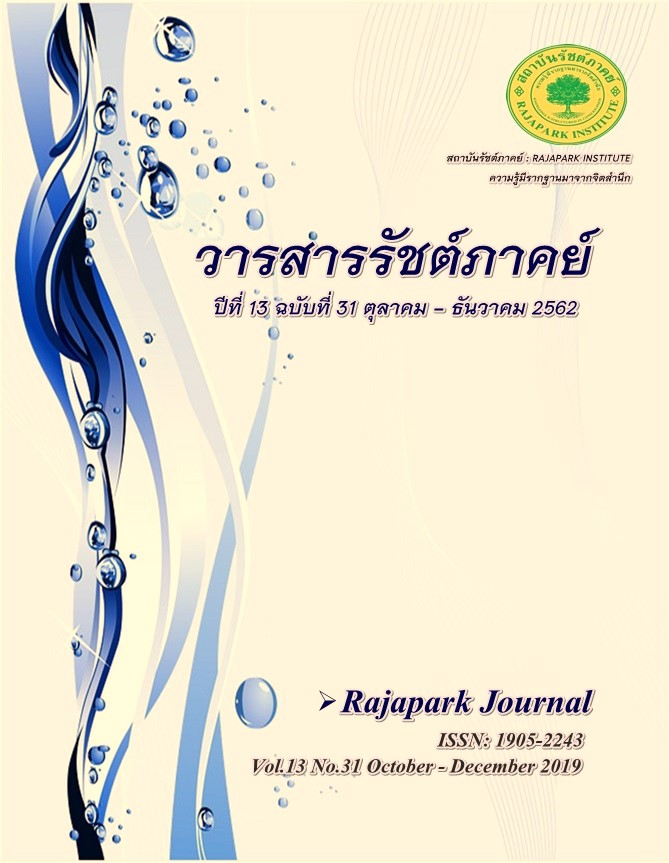The Role of the Government Manager of Thai Politics After the Dictatorship During 1988-2001
Main Article Content
Abstract
This research aims to study the context. Influence factors Thai political leaders after democracy in 1988-2001. And study the political role of Maj. Gen. Praman Adireksan, Major General Sanan Kachornprasart, Mr. Banharn Silpa-archa, Mr. Sanor Thienthong, Mr. Wattana Asavahame and Mr. Suthep Thaugsuban. Through in-depth interviews with interviews with expert reviewers. Key informants from politicians Most political scholars are closely related to 12 politicians.
Find out which context influences factors. The manager of the political. The factors that drive the role of government managers during these periods are: (1) the context and (2) the clear political situation. And the pressure of being a government manager in various forms, the existence of a viable government. Have the power to coordinate. Management in the before and after the establishment of the government. To coordinate and cooperate with the government and the opposition. To honor and care for those involved. Everyone is happy. Maintaining intimacy and being media friendly Newspapers and TV A person with personality Leadership is high. To allocate appropriate politicians and quotas. In terms of political roles, Is different I do "for the benefit of the nation", some focus on their own interests, mostly.
Article Details

This work is licensed under a Creative Commons Attribution-NonCommercial-NoDerivatives 4.0 International License.
Views and opinions appearing in the Journal it is the responsibility of the author of the article, and does not constitute the view and responsibility of the editorial team.
References
Axelrod, R. (1982). Conflict of Interest. Chicago: Markham.
Dahl, Robert A. (1975). Modern Political Analysis. New Delhi: Prentice-Hall of India Private Limited.
Dodd, L. C. (1974). Party Coalitions in Multiparty Parliaments: A Game Theoretic Analysis. American Political Science Review, 68, 1093-1117.
Chaiporntham, D. (1994). Politics and Government (Folk Version) = Politics. Bangkok: Europa Press.
Harold D. Lasswell, Daniel Lerner, & C. Easton Rothwell. (1954). The Comparative Study of Elits, An Introduction and Bibliography. Standford: Hoover Institue Studies, Standford University Press.
Poolsawat, R. (2009). Establishing the political power base of business groups in Thai local politics: A case study of local political groups in Karon Subdistrict Municipality, Phuket Province. Sukhothai Thammathirat Open University: Nonthaburi.
Sethabutr, N. (2005). Contract with democracy. Bangkok: Thammasat Publishing House.
Samudavanich, C. (1974). Independent thinking: a collection of political articles between 1968-1973. Bangkok: Pikkhanes.
Thirathiti, C. (2008). Human Resources Development. Nonthaburi: Sukhothai Thammathirat University.
Wongwittayaphanich, N. (2007). The Formation of the One Party Government in Thai Politics: A Case Study of the Thai Rak Thai Party. Thammasat University Thesis Faculty of Political Science, Thammasat University.


